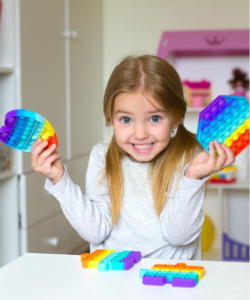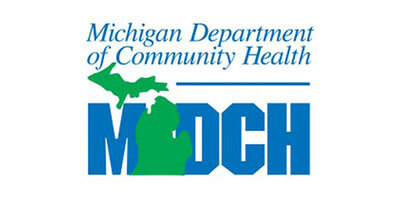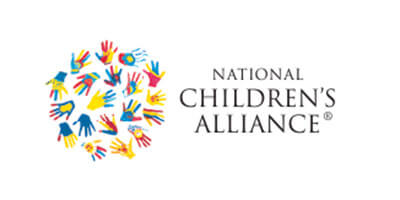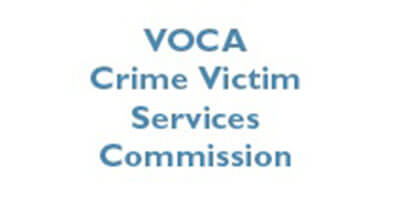Most of you wake up, thinking it will be a normal day…you get your coffee, make breakfast, get your kid(s) ready for school, maybe even send them off to school, you throw a load of laundry in, maybe run some errands, come home, and expect your kids to come home around 4:00 where you then have a whole other set of tasks and challenges. This is the normal day that most parents expect, day-in and day-out.
But for some of you, at some point during your day, whether it was when you were doing laundry or running errands, you received a phone call from the school or during dinner while you’re asking your kids about their day or talking about whatever it may be, your kid makes the comment, “Someone touched my pee-pee”
…and in that moment, everything is in slow motion, your mind starts to race, and without any warning to you, your whole world is flipped upside down.
When parents come to our center, they have so many valid questions and worries. We offer support services for them after their child’s interview and counseling services following that. During that time, some of the most common questions we hear are:
- “Can my kid still live a normal life?”
- “Will they always remember what happened to them?”
- “Are they going to do the same thing when they get older?”
The truth is, children who are victims of abuse CAN still live a normal life; they will always remember, but they won’t always be haunted by it; and they won’t necessarily become abusive when they are older. This isn’t to say the healing process is easy or guaranteed, but with the right help they can move past it and use it to strengthen who they are in the years to come.
“Sometimes adults say, ‘They’re too young to understand.’ However, young children are affected by traumatic events, even though they may not understand what happened.”
– http://www.nctsn.org/trauma-types/early-childhood-trauma
Treating trauma and abuse with counseling can be complex, but also beneficial for the child. Some counselors try to treat the symptoms without looking at the trauma, and others will treat the trauma without working on the symptoms. These methods can both work to some degree, but the fact is that BOTH the symptoms and the trauma need to be considered and treated to successfully work through their experience.
At Lapeer CAC, we us the Trauma-Focused Cognitive Behavioral Model of therapy, which can be summarized by following 8-steps:
1) Psychoeducation
Psychoeducation is basically just a big word that means “teaching.” It means teaching the parents and the kids about trauma and abuse. It means giving information about the common signs of abuse. It means helping families realize they are not alone in what they are going through. It means providing hope for these families to know their child is going to be okay.
So whenever a therapist or random person says “psychoeducation”, just know that it means they want to teach you something…to help you understand.
2) Relaxation Skills
This one is pretty self-explanatory, but one thing we go over with all the kids that come for counseling is how to relax when they feel overwhelmed. When they are reminded of the trauma and feel like they’re losing control, we teach them to focus on breathing and relaxing their muscles. We encourage parents to:
- Sing songs with their kids
- Blow bubbles to help regulate their breathing
- Stop and take 5 deep breaths
These are all things that can help calm us down when life seems to be too much to handle.
3) Affective Modulation Skills
Oops, so we’re back to the big words! Affective Modulation is best explained by saying “controlling your emotions.” Whether it’s anger or anxiety or overstimulation, these “affective modulation” skills help kids to identify what they are feeling (affect) and then “modulate” or change that emotion to something more manageable. Some ways we do this are:
- Problem solving
- Anger management
- Focusing on the present
- Positive distraction
4) Cognitive Processing Skills
I promise there’s a point to these lengthy and seemingly unnecessary word! Cognitive Processing Skills means looking at our thoughts and how we’re interpreting the information that’s coming in. It helps us to recognize the connections between what we think, what we feel and how we act and then replace the inaccurate thoughts with something more helpful.
The best way to explain this is to use a teenager’s mind. Most teenagers have cell-phones and want responses RIGHT NOW. So, let’s say your teenage daughter texts her friend, the friend “reads” the text message, but then doesn’t respond. A lot of time the “inaccurate thought” is “She’s ignoring me, so she must hate me and not want to be friends with me anymore!” when in reality the situation could be that the friend didn’t have time to respond at that moment or maybe got in trouble and her phone was taken away.
One of our jobs in counseling is to help reframe these situations to have a more realistic automatic thought.
5) Trauma Narrative
The Trauma Narrative step is when we help kids to use all the coping skills they have learned to create a detailed story of their abuse experience and start to change their inaccurate or unhelpful thoughts about the trauma. Some things the trauma narrative include are:
- What they remember using their five senses
- What they were thinking and feeling in that moment
- How this event changed their life
This is completed over multiple sessions and only when the child is ready to share their story. There is power in telling a story and it’s important for a child to have this opportunity.
6) In Vivo Mastery of Trauma Reminders
This step is only for kids who have ongoing exposure or are consistently avoiding people or places that remind them of the trauma (i.e., school, basement, family members or friends, etc.) The “in vivo mastery” helps them to slowly build a tolerance to these “triggers” because they can’t always avoid school or certain people throughout their life. “In vivo” means in a real-life situation, where they are gradually exposed to what they are scared of until they can overcome that fear!
7) Combined Parent-Child Sessions
It is so so important for us to include parents in this whole process! As therapists, we only see your kids for one hour each week and the rest of the time is spent at school or at home with you. In order for there to be any lasting effect, it’s important for parents to be in the loop about what’s happening in counseling.
This “step” of the whole process is focused on the child sharing their trauma narrative with you and working on the parent-child relationship specifically. A lot of times when a child is abused, they either become extremely angry at the parent and it strains the relationship or the complete opposite happens and they become extremely clingy and never want to leave your side. Both of these patterns are unhealthy and it’s important for it to be resolved.
8) Enhancing Safety and Future Development
This is the final step of TF-CBT and to put it short, it prepares kids for their future. Even if they don’t ever forget what happened to them, they can still have an incredible life ahead of them.
As therapists at The Child Advocacy Center of Lapeer, we P-R-A-C-T-I-C-E (look back at the first letter of each step and you’ll see what I did there 😉 ) Trauma-Focused Cognitive Behavioral Therapy to help kids work through each aspect of their trauma, including their thoughts, feelings and behaviors. The truth is they can live a normal life and you’ll find that kids are especially resilient. They will prove to you time and time again that they are…
“…Braver than you believe, stronger than [they] seem and smarter than you think”
…and yes I did just quote Winnie the Pooh!
If you have any questions regarding TF-CBT or childhood trauma, visit The National Child Traumatic Stress Network (www.nctsn.org) or call The Child Advocacy Center of Lapeer at (810) 664-9990!







